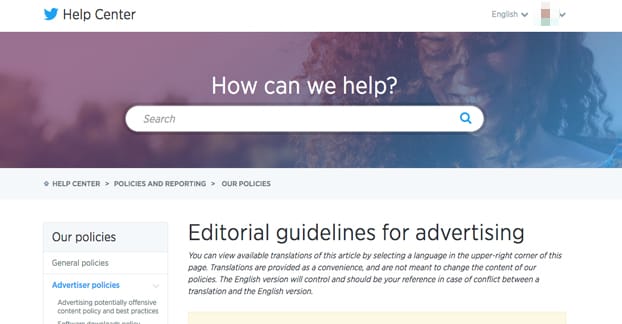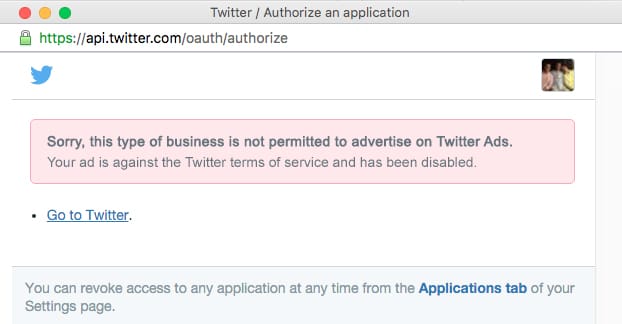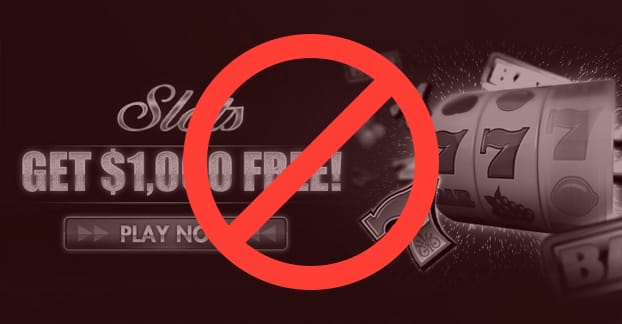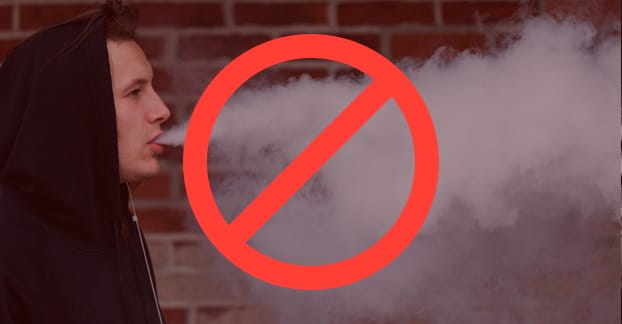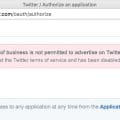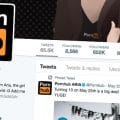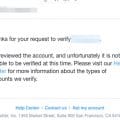Twitter is a massive site with hundreds of millions of users, and they don’t have restrictions based on country or age. The only restrictions are those imposed upon them by foreign entities, such as China’s great firewall, and those imposed by general legalities, like the “must be age 13 or older” put in place by the Children’s Online Privacy Protection Act.
As such, there is a lot of potential exposure to people who, shall we say, shouldn’t’ see certain kinds of content. Twitter is fairly open regarding adult content – there are pornographic Twitter feeds all over the place, with no signs of them being taken down – but that’s organic. It’s easy enough to never see that kind of content on your feed; just don’t follow anyone who posts that kind of content.
Ads are a different story. Ads are injected into your feed based on a broad array of factors, and you have virtually no control over them. If you find a particular kind of content objectionable – or if it’s actually illegal for you to view, in the case of pornography for those under the legal age in their country – you can’t control it.
Oh, you have some settings. You can mute specific accounts or specific words, and you can block accounts. That’s not going to protect you from ads from accounts you don’t know, though, and I guarantee that there are more objectionable businesses out there than there is space in your block list.
In order to solve this problem, Twitter categorizes businesses into three main groups. One is free access, one is restricted, and one is banned. Free access businesses are brands like Coke, IBM, or the Huffington Post. They’re not publishing anything objectionable, so they’re free to advertise on Twitter as they see fit.
Banned content is equally simple; brands that advertise something Twitter finds objectionable and doesn’t allow on their site whatsoever. I’ll talk more about them in a moment.
The third kind are just exceptions to the rule of the second kind. Facebook has these in spades; they prohibit dating sites, but allow them if they get prior approval, so you see pages like Match.com’s here.
Twitter’s Ad Policies
From Twitter’s perspective, brands are responsible for their own ads. This means if a brand starts advertising alcohol to minors, it’s not Twitter’s responsibility, and any legal issues are issues the brand has to deal with. Twitter will happily work with law enforcement to take down the brand as well.
Twitter organizes their ad policies into six categories. Each one covers a lot of content, so I’ll just gloss over them for now.
- Keeping users safe. Anything that is deceptive, unsafe, misleading, illegal, or dishonest is prohibited.
- Targeting users appropriately. Ads that target a restricted audience are prohibited. This includes, but is not limited to, ads that promote dangerous content, counterfeit content, or content that is illegal to the audience being targeted, like alcohol to minors.
- Keeping Twitter free of malicious content. Spam, phishing, and malware distribution are prohibited.
- Keeping content high quality. Twitter has guidelines and policies for keeping ads high quality, to avoid terrible ads.
- Keeping links high quality. Twitter has specific guidelines for the off-site links you can promote, seen here.
- Keeping aware of the rules. Ignorance of changes in the rules is not an excuse to break them.
So what kinds of content, specifically, are banned from Twitter advertising?
Ads for illegal goods and services. You can’t make an advertisement putting a hit out on someone, calling for a lynching, offering cocaine for sale, planning a high profile art theft, promoting an illegal street race, or anything else you see in a typical action movie. If there’s a law against it, Twitter doesn’t want it on their site.
Ads for unsafe or deceptive products or services. For example, Black Salve – don’t Google this if you have a sensitive stomach – is a concoction sold as a “cure for cancer” that basically just burns off chunks of flesh. It’s horribly disfiguring and illegal to sell, and it’s unsafe to use. Anything that is unsafe to sell, transport, or own/use can be included in this category.
Ads with deceptive claims. Specifically, this means anything where you promise something you can’t necessarily deliver. The most commonly cited example is a Ponzi scheme or pyramid scheme, or any other “get rich quick” offer.
Ads for adult or sexual products. This is one of the most commonly fought gray area industries, and as such, Twitter has a lot of detail about it. The policy applies to promoted tweets, trends, and accounts, but not organic non-paid content. Pornography, including websites, magazines, books, films, games, and any other media, is banned. Companion services, escorts, and call girls are banned. Nudity, full or partial, aand sexual content is banned in image, video, and text forms. Products designed for breast enhancement or penis enlargement are banned. Sexual clothing, like edible lingerie or bondage gear, is banned. Explicit dating sites, like Adult Friend Finder, are banned. “Erotic” massage services are banned. Sex toys are banned. Dating and marriage services are banned.
However, there are plenty of kinds of “adult” content that are not banned. Anything meant for STD awareness, safe sex, and contraceptives is allowed, provided that the contraceptives are not prescription drugs, the ads do not contain sexual content, they do not link to sexual content, and they aren’t somehow damaging. There’s a whole page about just this topic, actually. Additionally, “adult” clothing like lingerie that is non-sexual is allowed. Nudity in fine art is allowed, though this will be taken on a case by case basis, and you can’t just take a nude selfie and label it art. Breastfeeding is allowed, medical drawings are allowed, and sexuality news is allowed so long as it itself is not sexual in nature.
On top of all of this, there are specific restrictions for certain countries.
- Japan bans marriage consulting and dating services.
- Qatar bans dating services.
- Russia bans anything that isn’t in the Russian language.
Ads for drugs or drug paraphernalia. This is another often-fought category, though it’s not as varied as adult content. Drugs means, to Twitter, “a substance sold to induce unnatural euphoria, unnatural highs or lows, psychoactive effects, or altered reality.” Drugs like Cocaine, LSD, Meth, and so forth are all obviously banned. Twitter also bans “legal high” drugs like psilocybin mushrooms and salvia divinorum.
As far as paraphernalia goes, Twitter bans accessories to use drugs, like bongs, pipes, vaporizers, or grinders. They also ban services that assist in obtaining drugs, like dispensary directories.
Some kinds of drug-related content are not banned. Hemp products are not drugs themselves and are generally allowed. Drug-themed content, such as movies like Pineapple Express, Growing Op, or Super High Me are all allowed, as are weed t-shirts and other non-paraphernalia items. Additionally, news and information about drugs are allowed, including posts about legalizing weed or studies into the chemical structure of various substances. Presumably, an article about how to make Meth would be banned, though.
Ads for products made from endangered species. This category is mostly meant to stop poaching and the sale of illegally traded items, like ivory from elephants and whales. It also includes products derived from cheetahs, dolphins, bald eagles, polar bears, sharks, tigers, zebras, and more. Yes, this includes “natural remedies” from places like China and India, where ingredients include tiger blood or rhino tusk.
Ads containing hate content, violence, or sensitive topics. Hate speech includes anything advocating against an individual, organization, or protected group based on race, ethnicity, nation, color, disability, sexual orientation, gender identity, or other status. It also includes threats against people or animals. Anything that glorifies self-harm is banned, as is anything promoting terrorists, attacks, or crimes. No, as much as you might not like the president, you can’t advocate another 9/11. Twitter is a liberal-leaning site as well, so the so-called Alt-Right is often banned, as is content from actual Nazis, the KKK, and other hate groups. Though, this is hardly a liberal slant; there’s a difference between being conservative and being racist.
Ads promoting illegal products or services. This section is very country-dependent. I won’t copy it all here, but here are some examples:
- Ads in Brazil cannot advertize infant food, milk substitutes, formula, or bottles.
- Ads in Egypt, Kuwait, and Malaysia cannot advertise pig, pork products, or pork derivatives.
- Ads in Mexico cannot advertize using national symbols, anthems, or flags.
- Ads in the Philippines cannot advertise overseas jobs unless the agency in question has an overseas employment license.
You can read more about the country-specific restrictions here.
Ads including spyware or involved in illegal hacking. This covers things from both sides of the issue. You can’t publish ads that phish the user or steal credentials. You also can’t run ads to sell equipment used in hacking, software used for hacking or denial of service attacks, software that spies on people, sniffs packets, taps phones, or monitors text messages. You also can’t sell products used in piracy, like software cracks or workarounds for copy protection.
Ads for tobacco products and accessories. This one is pretty simple. Anything that includes tobacco is banned. This includes cigarettes, cigars, chew, and snuff. Additionally, anything used primarily for tobacco (or drugs) is banned. Rolling papers, pipes, and such are included. Tobacco manufacturers are banned by law from advertising, and Twitter bans cigar bars and hookah lounges as well.
Perhaps controversially, Twitter bans e-cigs and vapes, even when they’re marketed for smoking cessation. This is an exception to a rule, because other smoking cessation products like gum and patches are allowed.
Likewise, some accessories are allowed. Ash trays and humidors are allowed, news about tobacco products are allowed, and anti-smoking content is allowed.
Ads for unauthorized ticket sales. This one is really simple; if you’re selling a ticket and you don’t have the authority of the venue to sell it, you can’t advertise it. Ticket scalping is a problem Twitter wants to combat. This includes unauthorized resale as well as counterfeit tickets. As much as you might not like Ticketmaster, you can’t advertise out from under them. To be fair, though, it isn’t like you’re going to out-spend them.
Ads for weapons or weapon accessories. Weapons and the right to possess them are a big debate in American culture, but Twitter doesn’t want to have to deal with it. Guns are banned, including airsoft guns, air guns, blow guns, and rifles. Gun parts, including mounts and grips, are banned. Ammo is banned. Explosives and bomb-making supplies are banned. Fireworks and other pyrotechnics are banned. Knives are banned if they are more weapon than tool, like butterfly knives, fighting knives, hidden knives, switchblades, and throwing stars.
That’s a good jumping off point for what’s allowed, actually; kitchen knives and knives used as tools are generally allowed. Bows and arrows are allowed, as are crossbows. Hunting equipment is allowed, like scopes, belts, slings, and decoys. Stun guns, mace, and self-defense products are allowed, but no, you can’t use that as an exception by saying your pistol is a self-defense tool. Gun classes and gun ranges are allowed, so long as they don’t sell weapons or ammo. Martial arts equipment and classes are allowed, and collectors items are allowed, including both guns and swords so long as they’re non-functional. News and articles are, of course, allowed.
Ads involving countries subject to United States Trade Sanctions. Twitter is based in the United States, and as such, they are subject to trade embargos and sanctions. If you don’t deal internationally and you’re not in one of those restricted countries, you don’t have to worry about this.
Restricted Content
All of the above is banned, but as I mentioned before, some content is allowed with authorization on a case by case basis.
- Alcohol is allowed so long as it’s allowed in the country you’re advertising in, and that it’s not targeting an illegal audience, like minors. You also can’t advertise using characters or people appealing to minors, or using content that implies excessive drinking is a good thing. There’s a whole page on alcohol caveats, actually, so go read it here.
- Financial services are in general only allowed with prior authorization. This includes banks, loans, mobile payment services, mortgages, debt relief, investments, and currency exchange.
- Gambling is very rarely allowed and is generally only open to casinos advertising themselves. Online gambling is often prohibited, as are lotteries.
- Health and pharmaceutical services are generally banned with a few exceptions, like STD clinics, hospitals, dental services, and prescription glasses. It’s a complex industry so you can read their page about it here.
- Political campaigning.
In general, you can assume that the above are banned without being an official agency representing a legitimate business. You’ll need to get permission before advertising in any of them.
